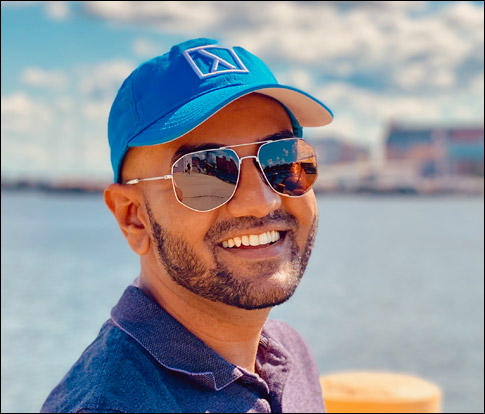Mert Hidayetoglu of the University of Illinois at Urbana-Champaign and Tirthak Patel of Northeastern University are the recipients of the 2021 ACM-IEEE CS George Michael Memorial HPC Fellowships. Hidayetoglu is recognized for contributions in scalable sparse applications using fast algorithms and hierarchical communication on supercomputers with multi-GPU nodes. Patel is recognized for contributions toward making the current error-prone quantum computing systems more usable and helping HPC programmers solve computationally challenging problems.
Mert Hidayetoglu
Sparse operations are the main computational workload for numerous scientific, AI and graph analytics applications. Most of the time, the costs of computation and communication for distributed sparse operations constitute an overall performance bottleneck.
Hidayetoglu’s research investigates this bottleneck at two specific points: memory accesses and communication. He has proposed and demonstrated two novel techniques: sparse matrix tiling and hierarchical communications. The first technique, sparse matrix tiling, accelerates sparse matrix multiplication on a single GPU by the preprocessing of sparse data access patterns and constructs necessary data structures accordingly. The second technique, hierarchical communications, eliminates the communication bottleneck , which typically dominates end-to-end execution time when large problems at terabyte (TB) scale fit on only hundreds of GPUs. Hidayetoglu’s technique performs sparse communications (depending on the sparsity pattern of the matrix) locally-first to reduce the costly data communication across nodes.
Hidayetoglu has successfully demonstrated these techniques in award-winning applications, including large-scale X-ray imaging at Argonne National Laboratory and accelerated sparse deep neural network inference at IBM. Related papers at SC20 and HPEC20 won the best paper award and the Sparse Challenge championship title, respectively.
Tirthak Patel
Patel's research addresses the challenge of erroneous program executions on quantum computers and provides robust solutions to improve their reliability. Despite rapid progress in quantum computing, prohibitively high noise on existing near-term intermediate-scale quantum (NISQ) computers remains a fundamental roadblock in the wider adoption of quantum computing. Due to the high noise, program executions on existing quantum computers produce erroneous program outputs. Quantum computing programmers largely lack the tools to estimate the correct output from these noisy program executions.
Patel, advised by Devesh Tiwari at Northeastern University, is designing cross-layer system software for extracting meaningful output from erroneous executions on quantum computers. In particular, he first led the effort to benchmark and characterize the performance of different quantum algorithms on IBM quantum computers. Patel leveraged insights gained from this measurement-based experimental effort to inform the design of his novel tools and methods, including VERITAS, QRAFT, UREQA, and DisQ.
For example, his technique VERITAS demonstrates how carefully-designed statistical methods can mitigate errors post-program execution and help programmers deduce the correct program output effectively. Patel's other solution, QRAFT, leverages the reversibility property of quantum operations to deduce the correct program output, even when the program is executed on qubits with relatively high error rates. Both approaches relieve programmers and compilers from the burden of selecting the qubits with the least error rate, a significant departure from existing approaches in this area. Patel's work lowers the barrier to entry into quantum computing for HPC programmers by open-sourcing multiple novel datasets and system software frameworks.

